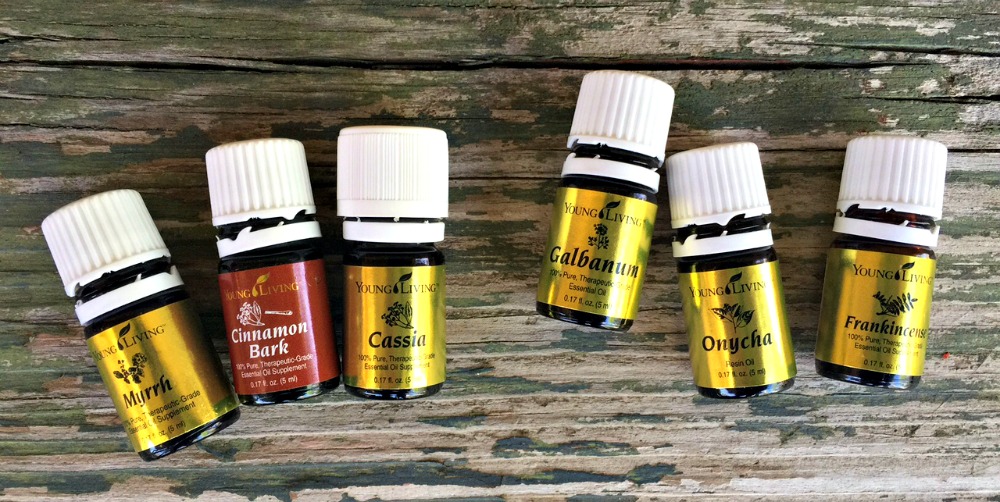Nobody is perfect
How many times have you felt that everyone around you has it all figured out? I’m here to let you in on a little secret: Nobody is perfect and it is actually those little imperfections that make us who we are and help us to relate to those around us who need help. Being perfect is actually quite a lonely place to be…cut off from our community in judgement of others and how much more perfect they could be. Nope–being vulnerable is where the good stuff comes out!
In this week’s reading: Ki Tisa: Exodus 30:11 – 34:35, we learn just how imperfect we truly are because of our sin of worshipping the Golden Calf. However, the real beauty of this portion isn’t in the dramatic narrative of that sin, it is actually a theme of acceptance that runs through the entire portion and just might be overlooked because much of the knowledge is lost. Let me elaborate.
We all count
First we hear about a census being taken. As it is written:
“The Lord spoke to Moses saying: When you take a census of the Israelite people according to their enrollment, each shall pay the Lord a ransom for himself on being enrolled, that no plague may come upon them through their being enrolled.”
Each man is to be counted and each man is to provide a half shekel (nothing more and nothing less even if you were very rich or very poor) to redeem his soul to G-d. But with the Hebrew comes some amazing teachings:
- Ki Tisa doesn’t mean ‘counting’ – it actually means ‘the elevation of one’s head’. This shows us that each one of us counts in a very big way. Our words and deeds mean something to this word and we all carry great significance in what we do. We are responsible for much!
- V’Natnu means ‘and they shall give’ and in Hebrew this is a palindrome, a word that reads the same backward and forward. This reminds us that what we give always comes back to us 1000 fold.
The Holy Anointing Oil and Incense
Next comes something that most push aside and gloss over as ancient ritual. But from what I found in my research, there is much to be learned from this ancient wisdom that we can revive now to help us. What we find are detailed instructions for making a holy anointing oil for the High Priest which has never since been replicated nor is it allowed to be replicated exactly and instructions for how to make and burn the holy incense that will be used twice a day during this time.
One point that is striking is that these herbs were not all readily available in the area. Some came from as far away as Southeast Asia. They were extremely rare and valuable. Where did the Israelites get them from coming out of Egypt as newly freed slaves? Maybe they took them with them from Egypt? We know the Egyptians distilled and used such oils and herbs. Or maybe they were able to acquire them from traveling caravans. We don’t really know but all I know is that these two recipes were not an easy thing for the Israelites to make at that time – nor are they easy to make or source even today.
The Holy Anointing Oil was to be used to anoint and consecrate items in the Mishkan and the priests to make them holy. A detailed recipe is given and it is to be made by master perfumers who were very skilled at their craft. Maimonides (1) explains that the spices were not added directly to the oil. Why were the spices not ground and added directly to the oil? This would have been much easier to make! Instead the plants referenced in the recipe we actually distilled (the plants were steamed in water and the water was boiled off to leave only oil) into pure plant oil. Rav Yosef Dov Soloveitchik Ztl (2) explained that the Torah is very specific in its terminology. In this command, the Torah requires that an OIL of Anointing be created. This implies that the substance used for anointing be an OIL. It may not be composed of various ingredients joined in a compound. The unique production process of distillation met both requirements and now you can see why master perfumers were involved. The Oil of Anointing was composed solely of the oil. The fragrance of the spices was added without adding an additional substance that wasn’t oil.
So what was in the recipe? Please note that it is stated this recipe is not to be replicated exactly as it is written in the exact quantities. This was only made once and by some miracle is supposed to last until the Messiah comes. It just goes to show you that this wasn’t used in great quantities and that a little went a long way in making holiness ‘contagious’. It is now hidden safely away somewhere only to be returned to us when the Messiah comes. But in case you were worried, I did say making an exact replica is banned but I do not believe any of us knows the precise species of plants used nor what a unit of measure of a ‘lug’ or a ‘hin’ is in these days nor a ‘5 hundred weight’ nor any knowledge of how much yield of pure oil a 500 weight of myrrh would make in proportion to the larger recipe! So I think we are safe from any curses of being cut off from our kin in using these essential oils today!
The Holy Anointing Oil contained
- Myrrh
- Cinnamon
- Cane – no one really knows what this is but Maimonides believes it is actually Palmarosa. Some Christians think it is Calamus but I am going to go with the Maimonides view for our purposes here.
- Cassia
- Olive Oil
Let’s look at the emotional benefits of these oils and we can get a really fascinating picture of what holds us back from feeling holy:
- Myrrh – experiencing difficulty which keeps us from knowing ourselves.
- Cinnamon – feeling phony or being phony which keeps us from being our true self.
- Palmarosa – feeling unsafe and insecure which keeps us from being vulnerable to others and from trusting others.
- Cassia – feeling dependent on other people’s opinions which keeps us from being steadfast and independent thinkers.
Gulp. I don’t know about you but reading this makes me want to put these oils on every day. Wow. Talk about elevating ourselves to ensure we know our responsibility to G-d to be truthful and honest representations of our unique light to the world!
The Holy Incense contained
Next we get detailed instructions for making an incense to burn twice a day on the Incense Altar we learned about last week in Terumah. This incense is to be expertly blended as a powder to burn as well of the following ingredients:
- Stacte – we aren’t really sure what this is either. It is said to maybe be the blood of some impure animal but some people also think it might be some type of balsam.
- Onycha – also called Benzoin – this resin came from Southeast Asia
- Galbanum – truly a not so pleasant extremely earthy and ‘dirt’ kind of aroma (although I enjoy it well enough)
- Frankincense – also a resin and could have been plentiful in the area but was highly sought after and was deemed to be more valuable than gold in those times.
Let’s consider again that this incense was being burned twice daily so the Israelites would have needed to make quite a lot of it and always have it on hand. Let’s explore the emotional benefits of these herbs:
- if Stacte was balsam then it could have been for feeling scattered which keeps us from feeling centered in our faith.
- Onycha – for feeling terrified and allows us to surrender to the safety of prayer and G-d.
- Galbanum as a part of this blend shows us that imperfection is not only tolerated but REQUIRED. Among us there will always be people who annoy us or seem like black sheep and we all have something inside of us we wish wasn’t there. Having galbanum as part of this holy incense demonstrates G-d’s love for even the most imperfect parts of us and our communities and shows us that all belong.
- Frankincense – for feeling worthless which keeps us from knowing we all have something valuable to offer this world.
Now for the drama and narrative
It is fascinating to me that all of this instruction on how to appreciate our imperfections and to elevate each of us from sin with the census and redeeming half shekel and the holy anointing oil and incense comes right before the ultimate fall of our people with the sin of worshipping the Golden Calf. Clearly we are not perfect! But what was going on with our supposed great leaders at this time? Were Moses and Aaron free from guilt of this sin? Far from it. We can learn so much about leadership by looking at how royally they both messed up here.
Moses left his people for quite a long time. They of course felt abandoned and restless without him. They were used to his presence and strong voice. Maybe he could have sent word with updates from his spot on the mountain to ensure everyone knew he was ok! As leaders we all need to be mindful of presence of lack thereof. People will always go and find something or someone else to occupy their minds and hearts if you disappear.
Aaron actually made the Golden Calf! And then he gives some lame excuse to try to make it seem like he had no choice. He is too afraid to tell the masses NO. In all likelihood he is probably thinking – oh dear – maybe Moses will return before this thing is made! In the coming weeks we will see how G-d chooses to make him suffer and it is quite sad really the life he ends up living…likely all due to this instance.
In the end, G-d has provided the solution to this sin already…it is in building the Mishkan and all that goes with it in the daily sacrifices and offerings – oil and incense and animals and all. And we still continue to this very day in making sacrifices (not the animal kind but the kind from our soul) to ensure we seek our whole and true selves in the pursuit to fulfill our G-d given purpose to the world. Because none of us is perfect but we certainly all count!
Wrap up: Oils to add to your prayers
All oil references to emotions are from this book. I use this book in a variety of ways and explain how in this video.
- Myrrh for feeling Difficulty. The other side is Knowing. Say “I move with life” while applying a drop of Myrrh to the lower back.
- Cinnamon for Phony. The other side is Real. Say “I embrace life” while applying Cinnamon (diluted) to the stomach.
- Cassia for Dependet. The other side is Steadfast. Say “I am determined” while applying Cassia (diluted) to the back of the neck.
- Onycha for Terror. The other side is Safety. Say “I surrender” while applying Onycha to the lower abdomen.
- Frankincense for Worthlessness. The other side is Approval. Say “I am valuable” while applying Frankincense to the jaw line.
Sources:
(1) Rabbaynu Moshe ben Maimon (Rambam / Maimonides) Mishne Torah, Hilchot Klai Mikdash 1:2.
(2) Rav Yosef Dov Soloveitchik, Lectures on Mesechet Keritut.

